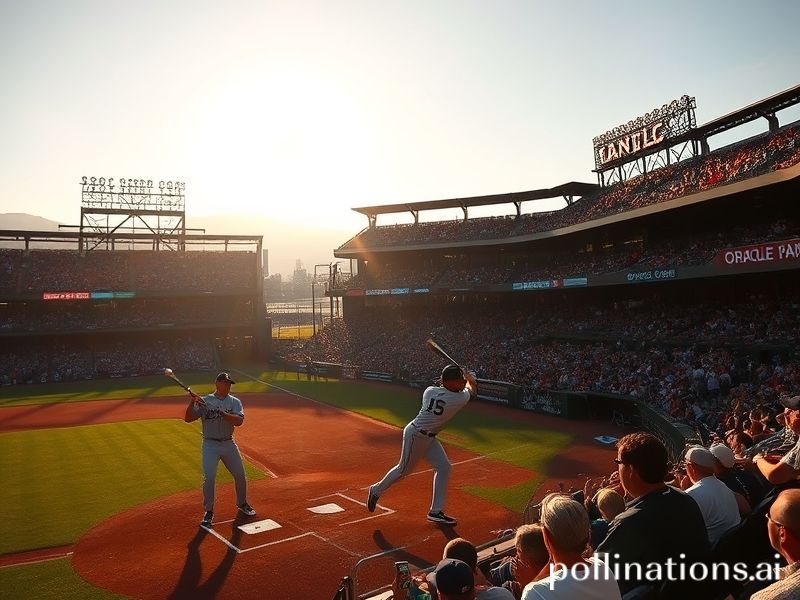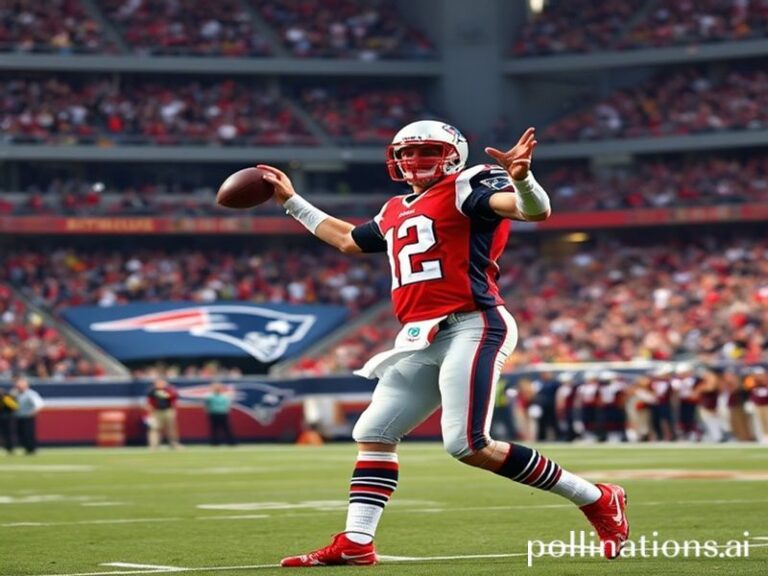Global Schadenfreude: How the Giants’ Dodgers Domination Became the World’s Favorite Morality Play
**When Giants Fall: The Global Schadenfreude of a Dodgers Dynasty**
The San Francisco Giants’ ritual humiliation of the Los Angeles Dodgers—baseball’s answer to a Goldman Sachs quarterly report—has achieved that rarest of feats: making the rest of the world give a damn about American baseball. From Singaporean hawker centers to São Paulo’s metro stations, humans who couldn’t tell a bunt from a baguette are suddenly fluent in the ancient art of Dodgers-related mockery. How deliciously predictable.
This isn’t merely sport; it’s the global economy in microcosm. The Dodgers—baseball’s equivalent of a too-big-to-fail investment bank—have spent $1.2 billion on player salaries since 2020, roughly the GDP of Grenada. They’ve constructed a roster with the subtlety of a Silicon Valley monopoly, hoarding talent like a dragon with cryptocurrency. And yet, here they are, victims of their Bay Area nemesis, proving that money can indeed buy everything except the ability to hit a slider in October.
The international significance cannot be overstated. In an era when billionaires play space tourism while their workers urinate in bottles, the Dodgers’ failure provides the kind of cosmic justice that actual justice systems have largely abandoned. From the taverns of Manchester to the beer halls of Munich, working-class souls who’ve watched their livelihoods outsourced to algorithmic efficiency find solace in watching Goliath whiff on a 95-mph fastball. It’s the closest thing modern capitalism offers to revolution.
Consider the geopolitical implications. China, currently perfecting the art of making American corporations grovel for market access, surely notes how even unlimited resources can’t guarantee victory. Russian oligarchs, experts at converting state assets into personal wealth, must appreciate the Dodgers’ innovative approach to converting money into disappointment. The European Union, perpetually puzzled by American excess, finally has a metaphor they can grasp: spending like drunken sailors while achieving the organizational efficiency of a Greek bureaucracy.
The psychological impact on the global psyche is equally profound. In a world where tech bros promise to disrupt everything except their own mediocrity, where cryptocurrency millionaires spring up like mushrooms on a cow pie, the Dodgers serve as a necessary corrective—a $280 million reminder that throwing money at problems works about as well as throwing water on a grease fire. Their suffering provides the kind of spiritual nourishment that organized religion used to offer before it discovered Instagram.
From Lagos to Lahore, humans understand this narrative instinctively. The wealthy team that buys success only to faceplant spectacularly? That’s not baseball; that’s the human condition with better uniforms. It’s Greek tragedy wearing eye black, Shakespeare with sunflower seeds, a morality play where the moral is that having more money than God merely means you can afford better excuses.
The Giants, those lovable underdogs from a city where the median home price could purchase a small nation, represent something increasingly rare: victory through cohesion rather than acquisition. It’s a concept so revolutionary that Silicon Valley venture capitalists are probably trying to disrupt it as we speak. “Sure, they’ve won,” some Palo Alto genius likely mutters, “but have they considered scaling their operations and pivoting to blockchain?”
As this drama unfolds across screens worldwide, we’re reminded that some universals transcend culture: the joy of watching the overdog become the underdog, the satisfaction of witnessing hubris meet its inevitable reward, the comfort of knowing that somewhere, somehow, the wealthy are still capable of spectacular failure. In an age of algorithmic certainty, the Dodgers provide the kind of beautiful chaos that makes life worth living.
The world watches, and somewhere, a billionaire checks his portfolio while a child learns that money isn’t everything—just mostly everything. Baseball, that most American of pastimes, has become our global coping mechanism. How perfectly, tragically fitting.







